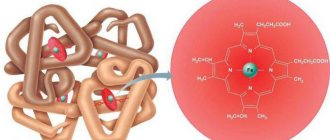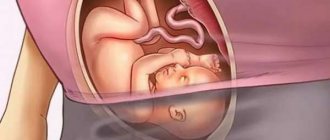Causes of loss of appetite
It is customary to distinguish the following types of changes in appetite:
- complete loss of appetite (anorexia);
- partial reduction;
- change in taste preferences.
Causes of loss of appetite in children include:
intoxication of the body (against the background of poisoning and somatic diseases of inflammatory origin);- diseases of the gastrointestinal tract in the acute phase;
- metabolic disorders;
- pathologies of the endocrine glands (hypofunction of the hypothalamus, thyroid gland and pituitary gland);
- neuropsychiatric disorders;
- individual and age characteristics.
Loss of appetite in a child is often one of the symptoms of the so-called. “seasonal” diseases – ARVI and influenza. In the acute period, you should not force feed the patient, since in this situation incomplete digestion of food is possible. A child’s refusal to eat may be the first clinical manifestation of poisoning from low-quality foods or medications. Food toxic infections (salmonellosis, botulism, etc.), which require hospitalization in the infectious diseases department of a hospital, cannot be excluded.
Loss of appetite often indicates the presence of serious autoimmune diseases and pathologies of the liver and hepatobiliary system. If loss of appetite is accompanied by dyspeptic disorders (belching, nausea, heartburn), there is reason to suspect the development or exacerbation of diseases of the gastrointestinal tract. In such cases, you need to seek help from a gastroenterologist who will prescribe the necessary tests and draw up a treatment plan.
When, in addition to loss of appetite, a child experiences increased fatigue, drowsiness and decreased blood pressure, there is reason to suspect endocrine diseases - in particular, hypothyroidism (decreased functional activity of the thyroid gland). In such cases, a consultation with an endocrinologist, an ultrasound scan of the thyroid gland and tests for hormone levels are required. Computed tomography helps to identify pathological processes in the pituitary gland and (or) hypothalamus.
Metabolic disorders often develop against the background of the growth of malignant tumors. Already in the early stages, the patient’s sense of taste changes and there is a loss of appetite. Refusal from eating meat should be especially alarming. If there are certain signs of a tumor, the patient is referred for examination to an oncologist.
In neuropsychiatric disorders, decreased or complete loss of appetite (anorexia) is one of the leading clinical signs. The process of eating does not give the patient pleasure, the food seems tasteless, and rapid satiety appears. Even small portions of food cause an unpleasant feeling of heaviness and fullness in the stomach, as well as nausea. In such cases, consultation and treatment with a psychotherapist or neurologist is required.
Please note: anorexia nervosa is most often diagnosed in young girls with an unjustified desire to lose weight. With this pathology, an aversion to food gradually develops. Often, severe exhaustion develops against the background of anorexia, in severe cases accompanied by irreversible changes in the body. If there is a complete loss of appetite, long-term treatment in a hospital may be required.
Loss of appetite (usually a more or less pronounced decrease) may well be a variant of the norm, i.e., it is not always a sign of somatic diseases or nervous disorders. Children's need for food changes at different stages of development. It is determined by the intensity of growth, energy costs and hormonal levels.
Important: studies of eating behavior in children have shown that every fifth child aged 4-5 years is picky about food. In some of them, this feature persists for up to 9-10 years.
Why does my child eat formula poorly?
This issue is included in a separate section, although some aspects regarding the nutrition of formula-fed infants coincide with the problems of breast-fed children. And yet, artificial babies have their own reasons for refusing food.
The main problem is the correct choice of mixture. Finding a mother's milk substitute that would suit the child's taste and at the same time not harm the child's digestion is not very easy. So, for newborns, an adapted mixture, specially designed for the little ones, is suitable.
The fifth month of life is a completely different age period, therefore, nutrition should also change. After all, the baby has grown up, which means his needs for food calories have also grown. In addition, the first complementary foods for artificial babies are usually introduced at this time.
In addition to the wrong formula, there are other reasons why a 3-month-old baby is not eating well.
- Uncomfortable nipple. Even small children already have their own preferences. Some people like thicker latex nipples, while others prefer silicone nipples. Parents should purchase several devices at once so that the child can choose the best one.
- Abrupt transition to milk substitute. If a baby is used to eating exclusively mother's milk, switching to artificial nutrition can lead to negative consequences or a temporary refusal of the formula. In this case, it is important to gradually adapt to a different diet.
- Nutritional content of the mixture. Milk substitute is more nutritious and will take longer to be absorbed by the body. Consequently, an artificial child will feel hungry not after 2.5 hours, but, roughly speaking, after 4 hours. This aspect should also be taken into account so as not to overfeed the baby.
Thus, when feeding a baby with a milk replacer, it is important to choose the right formula, silicone or latex bottle attachment, and also optimize the feeding regimen. In this case, the child's appetite should soon return to normal.
Decreased or loss of appetite in children
In children under 3 years of age, loss of appetite is often associated with teething, which is accompanied by severe local discomfort and deterioration in general well-being.
A child, as a rule, refuses to eat if he develops an infection of the mucous membranes of the oral cavity (stomatitis). Inflammation and the formation of numerous ulcers makes the process of eating painful.
Often the cause of a decrease or loss of appetite is forced feeding “by the clock.” Eating “by force”, when with low energy consumption, hunger has not yet appeared, can even lead to the formation of a negative attitude towards certain foods. You cannot force a child to eat with encouragement or threats - appetite must develop independently.
Please note: children's taste preferences sometimes change literally daily. The food that he eats with pleasure today may cause disgust in the baby tomorrow.
Loss of appetite is possible if the baby is not accustomed to eating in accordance with a certain regimen.
Refusal to eat is a common occurrence when snacking between main meals. Perhaps all parents know that sweets and starchy foods (“fast” carbohydrates) worsen appetite. You should not be surprised if your baby, having eaten a bun or chocolate shortly before lunch, refuses soup.
Nervous overstimulation or excessive fatigue can also affect appetite.
Don't force him to eat
When parents attach tragic significance to the fact that the child does not want to eat. Every meal turns into torture, both for parents and for the child. The simplest and surest way is to have your baby eat with all the adults.
Buy a separate small colorful plate and an attractive spoon.
Let your child watch you eat with pleasure and gradually imitate your behavior.
Children copy someone all the time. The most wrong thing would be for the whole family to stand and closely observe how much the child eats.
What to do if children lose appetite?
When a child regularly refuses to eat or eats with visible reluctance, it is first of all important to exclude the presence of nervous or somatic pathologies. In their absence, important attention is paid to the formation of a daily routine and nutrition, ensuring that the diet is complete and varied.
How can parents help?
When a child, in the absence of serious illnesses, limits his diet on his own, there is no need to worry that he will go hungry.
Average age requirements of a growing body in kilocalories:
- 3-5 years – 1500;
- 5-8 years – 1800;
- 8-12 years - 2000;
- 12-16 years old – 2400.
Important: excess calories can cause weight gain and obesity, which is increasingly being diagnosed in children nowadays.
Some parents believe that a well-fed child with a weight slightly above the average for his age needs more calories than his thin peers. This is fundamentally wrong. Thinness is evidence that all calories received from food are burned. In overweight children who are prone to quiet games, the need for food may be noticeably less. You can often observe how a round-cheeked baby by the age of 9-10 begins to “stretch out” and there is no trace of fullness left.
Appetite, as a rule, increases significantly during the period of active growth and puberty. In parallel with changes in hormonal levels, a restructuring of all types of metabolism occurs. The adequacy of nutrition is determined not by the amount of food consumed, but by the rate of growth and development of the child and the degree of nutrition.
Please note: at different periods of life, children do not grow quite evenly, and their calorie needs change accordingly. From birth to 3-4 years, the period of “first fullness” continues, and then the vast majority begin a “half-height growth spurt,” and children, as a rule, go into first grade slim and thin.
To improve appetite, the child needs to be offered a variety of foods, avoiding the so-called. "food conservatism"
It is necessary to regulate children's energy expenditure whenever possible. To improve appetite, a child needs regular walks in the fresh air, active games and physical education and sports. If he spends most of his time at the computer or in front of the TV, it should not be surprising that his need for food decreases.
A good remedy for loss of appetite in a child is a clear example. It is recommended to have lunch and dinner with the whole family. It is important that parents enjoy eating the same dishes that are offered to their children.
The baby should eat in a calm environment, without being distracted by external stimuli. He should not be allowed to eat in front of the TV.
If your child gets hungry between meals, offer him nuts or dried fruit. These foods will not suppress your appetite, but will help you cope with hunger.
Feeding time should be limited to 20-30 minutes, and if you refuse a particular food - 15 minutes.
Poor appetite: which doctor should I contact?
If there is a persistent decrease or loss of appetite, it is necessary to show the baby to a pediatrician. It may be necessary to consult specialists.
If your baby appears sick, tired, or simply not energetic enough, you may need to be tested by:
- nutritionist;
- endocrinologist;
- psychologist;
- neurologist;
- gastroenterologist.
It is possible that treatment of the underlying disease is required to normalize appetite. A good reason to consult a doctor is the delay in the child’s growth and development, as well as his poor general health.
If pathologies of the digestive system are diagnosed, the child is prescribed a diet (in accordance with the specific identified disease), which will have to be followed for a long time. For any diseases of the gastrointestinal tract, meals should be fractional, that is, relatively frequent (6 or more times a day) and in small portions.
Weight gain
A child is born with an instinctive-reflexive type of behavior. That is, all his actions are subordinated to certain instincts, which include the sucking reflex. The baby does not yet know how to overeat, so normally he eats as much as necessary. If the mother thinks that the child is not eating well, you need to check whether he is gaining weight.
Experts have developed special tables that stipulate how many grams a child should gain every 7 days, every 30 days and every 12 months. Checking the standards allows parents to understand how well the nutrition is organized, whether there is enough milk for the baby or whether it needs to be supplemented.
After birth, the baby’s body weight decreases within 7 days. However, you should not worry, since this is a completely natural process. Meconium (newborn feces) comes out of the child’s body, and the child is in a stressful state. After a week, the weight will begin to increase.
Let's look at the average weight gain over the first 12 months:
- up to 3 months - the average increase is 800 grams per month, since the child constantly sleeps and does not expend much energy;
- from 4 months to six months – the child begins to explore the world, rolls over, sits down (at 5 months). Gain at 4 months and older – 500-800 grams;
- from six months to 9 months – the child actively crawls, sits up, stands up in bed, and receives complementary foods. Weight gain is 300-600 grams per month;
- from 9 to 12 months – the baby explores the world around him, spending almost all his calories. On average, weight gain is 100-500 grams monthly.
Less weight gain does not mean that the child has any problems. Such indicators are very conditional, since everything depends on the characteristics of the infant himself.
As already noted, poor appetite does not always mean pain or pathology. In any case, an experienced doctor can dispel all concerns.
Folk remedies for normalizing appetite
To increase appetite, you can use folk recipes - decoctions and infusions of medicinal herbs.
Please note: before giving your child herbal medicines, be sure to consult with your pediatrician to determine the presence of contraindications and the likelihood of allergic reactions.
Recipe 1
2 tsp. dry or fresh raspberries, pour 200 ml of boiled water and leave for 30 minutes. If there is loss of appetite, the child should be given 100 ml of infusion 4 times a day before meals.
Recipe 2
Pour 200 ml of water 2 tsp. dry crushed dandelion root and leave for 10-12 hours. The infusion should be taken 50 ml 3-4 times a day 30 minutes before meals.
Recipe 4
Brew 1 tsp. dried herb wormwood 200 ml of boiling water and leave for 30 minutes. The infusion should be taken 1 tsp. in 15-20 minutes. before meals three times a day.
Recipe 5
½ tbsp. l. dry cornflower flowers, pour a glass of boiled water, leave for 15 minutes, cool and strain. If you lose your appetite, it is recommended to drink 50 ml of infusion over 15-30 minutes. before meals.
Recipe 6
½ tsp. parsley seeds, pour 200 ml of cold water, put on fire and heat for half an hour, without bringing to a boil. Cool and strain the finished infusion. It is recommended to give the drug to a child 1 tbsp. l. 4-5 times a day before meals.
Recipe 7
Pour ¼ liter of boiling water 1 tsp. crushed anise fruits and leave for 30-40 minutes. The infusion should be drunk 50 ml per 30 minutes. before meals.
For loss of appetite, acupuncture therapy is indicated. One of the biologically active points is located on the outer lateral surface of the little finger near the nail. Before eating, it is recommended to massage this area for 20-30 seconds. with medium pressure intensity.
Chumachenko Olga, medical observer
22, total, today
( 171 votes, average: 4.51 out of 5)
Cranberry for cystitis: how to take, doctor’s recommendations
Flounder: benefits and harm
Related Posts
Anorexia nervosa
Among teenagers, a fascination with diets is popular and psychological problems are often encountered - with persistent violation of eating habits, these are also common reasons. Does the child have no appetite, does he not enjoy food, is he depressed? Perhaps we are talking about anorexia.
Anorexia nervosa harms physical and psychological health. This condition can be caused by severe stress, worries about growing up, a parent's divorce, moving to a new place of residence, or transferring to another school. More often than others, the problem is faced by children who lack parental attention.











